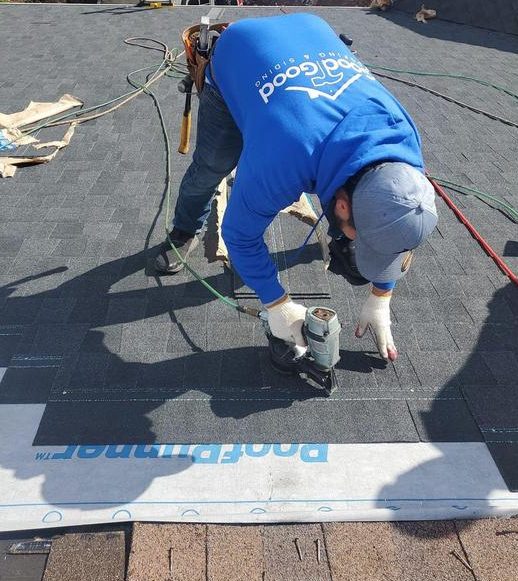Last updated on April 16th, 2024 at 02:08 pm
When it comes to selecting the ideal roofing material for your home, making an informed decision is paramount. Your choice will not only impact the aesthetics of your property but also its durability, energy efficiency, and overall value. With a wide array of roofing options available, it’s important to consider several factors before deciding on the best roofing material that suits your specific needs. In this article, we will guide you through the selection process, allowing you to choose a roof that will protect and enhance your home for years to come.
Your climate: One of the most important factors to consider when selecting a roofing material is your local climate. Different materials perform better in specific weather conditions. Here are some examples:
- Asphalt Shingles: This widely used roofing material is affordable and suitable for various climates. However, they may be prone to damage in extreme temperature fluctuations.
- Metal Roofing: Highly durable and ideal for areas with heavy snowfall or high winds. Metal roofs offer excellent insulation and can effectively reflect heat in warmer climates.
- Clay or Concrete Tiles: These materials are perfect for warmer regions, as they provide excellent insulation and can withstand intense heat. However, they may be susceptible to cracking in colder climates.
- Slate or Stone: Known for their unparalleled longevity and aesthetic appeal, slate and stone roofs are ideal for both hot and cold climates. They are highly durable but come at a higher cost.

Your home’s style: The roofing material you choose should complement the architectural style of your home.
Different materials lend themselves better to specific styles:
- Traditional Styles: Asphalt shingles are versatile and work well with most traditional homes. Wood shingles or shakes can also provide a classic look but require more maintenance.
- Contemporary Styles: Metal roofing, particularly standing seam panels, can give a modern and sleek appearance to contemporary homes. They come in various colors and finishes.
- Mediterranean or Spanish Styles: Clay or concrete roofing tiles perfectly match the distinctive aesthetics of Mediterranean or Spanish-inspired homes, adding a touch of elegance and authenticity.

Durability and Maintenance: The durability and maintenance requirements of roofing materials vary widely. Some materials may last longer but require more upkeep, while others may be low maintenance but have a shorter lifespan. Consider the following:
- Asphalt Shingles: Affordable and easy to install, asphalt shingles have a lifespan of about 20 to 30 years. Regular inspections and occasional repairs are necessary to keep asphalt shingle roofs in ideal condition. .
- Metal Roofing: With a lifespan of 40 to 70 years, metal roofs require minimal maintenance. Periodic inspections and repainting, if needed, can help prolong their lifespan.
- Clay or Concrete Tiles: Highly durable, clay or concrete tile roofs can last 50 years or more. However, they may require occasional replacement of individual tiles and regular inspection for any cracks.
- Slate or Stone: Known for their longevity, slate and stone roofs can last over a century. They require minimal maintenance but may need occasional repairs.

Energy Efficiency: In today’s eco-conscious world, energy efficiency is a crucial consideration when choosing roofing materials. Look for materials that can help reduce energy consumption and lower utility bills:
- Metal Roofing: Metal roofs are highly reflective and can effectively reduce heat absorption, keeping your home cooler in hot climates. They are also recyclable, making them environmentally friendly.
- Clay or Concrete Tiles: These materials provide excellent insulation, keeping your home cooler in hot weather and reducing the need for excessive air conditioning.
- Energy-efficient Shingles: Some asphalt shingles come with special coatings that reflect solar heat and can help improve energy efficiency.

In conclusion, choosing the best roofing material for your home requires careful consideration of factors such as climate, style, durability, maintenance, and energy efficiency. If you want to learn more about the best roofing materials to use in your area, reach out to a local certified roofing contractor with great reviews to help you!

